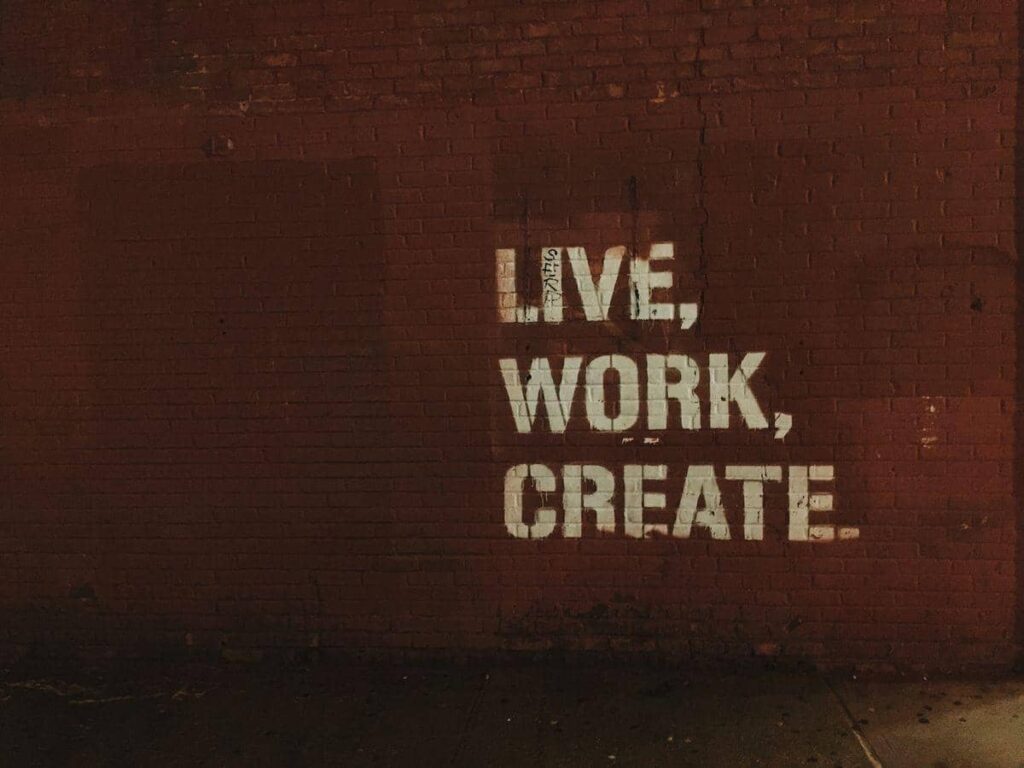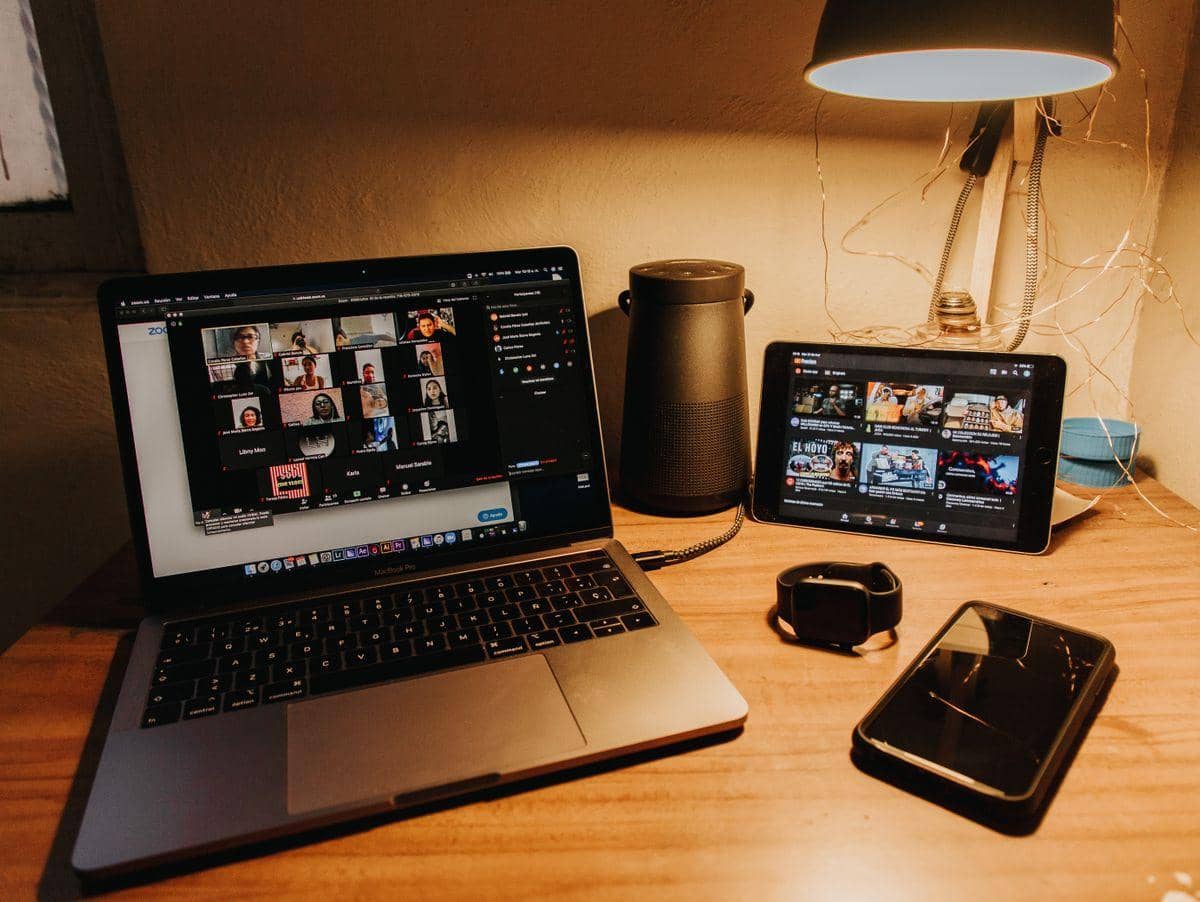Zoom has really killed my attention span at work this past year. That plus working remotely has been the one-two punch that has diminished my ability to focus to an all-time low. But should I really be surprised? I mean, even the name itself suggests speediness in moving from one thing to the next. How has this sort of virtual connection been shaping the way I see myself, others, and especially God in the context of my work?
A Shortened Attention Span

All I want to do when I’m on a Zoom meeting is to zoom off of it. I already have enough things ruining my attention span—social media, five-second YouTube ads, miscellaneous household chores when working from home. The immediacy of jumping in and out meetings and the temptation to multitask is not doing anything to help.
Simply put, it’s all too easy to switch over to the news, personal messaging, or at-hand tasks while trying to focus on work. The ability to do things offscreen (or onscreen) during a Zoom meeting only breeds impatience within me. If the speaker or presentation isn’t directly engaging or benefitting me in some way, I just Alt-Tab away. In longer meetings, I’m tempted to turn off my video to quickly manage a chore or perhaps fetch my 50th snack of the morning. All this has contributed to a shortened attention span and constant need to be engaged.
These habits do a poor job of reflecting the Creator nature of our God. In Genesis, God doesn’t multitask while he works—he focuses on one task at a time. In the gospels, Jesus always gives people his full attention. He never just listens with half-hearted attention, one earbud in and one earbud out, or taking meetings while walking around the house.
If I want to focus on embodying God in my work, I have to seriously consider whether the ability to connect with people at the snap of a button is a blessing or a curse. For a God that allowed the Israelites to wander for 40 years, who stayed faithful to his chosen family throughout generations, who sent Jesus to live as a human for three decades before enacting any sort of ministry—speed, urgency, and efficiency just don’t seem like top priorities, and neither should they be for me.
Losing the Moments to Reset and Transition

The virtual and expedited nature of video conferencing also takes away key moments for us to reset, transition into, and process our interactions with others.
When we meet people physically, it’s easier to reset and transition into the meeting because there are physical motions that accompany the mental shift. In the office setting, we do things like unplug our laptop, gather any needed materials from our desk, and physically walk over to another conference room. In the home setting, we need to budget in time for transportation, plan out our commute, and do things like putting on clothes (for those a little too comfortable working from home).The physical change in environment marks a suitable time to wrap up the task at hand.
When we meet up with people virtually, we lose the chance for this kind of transition.
We work up until the very last second and then “zoom” into someone’s presence. When we end a meeting, we eject similarly at the click of a button. There is no time for mentally ending one task in preparation for the next. We’ve lost the built-in actions to reset and pause, a chance to mentally “close our laptops.”
Researchers and behavioral neurologists have mentioned that the average person needs 20-30 minutes of break for every 2 hours of focused attention. In his wisdom, God gave us cycles of sleep every 24 hours. The church has taught a weekly practice of Sabbath for centuries. With rest being such an important theme to human behavior, I think taking the time to break from my concentration at work in preparation for engaging others can only ever be a good thing.
People Aren’t Pixels and People Aren’t Problems

It’s worth restating the obvious: people are more than just two-dimensional arrays of pixels. When the medium we use to communicate strips away bodily and subconscious cues that we might otherwise need to feel humanly connected, it’s hard to relate to people as more than just sources of information How does it change our brains when we collocate our coworkers onto our computer screens, the same place where we do work, browse the internet, and consume entertainment?
Add in Zoom fatigue, and no one wants to be on that meeting a millisecond longer than they need. It’s easy to drift into our own domains of privacy and to relate to coworkers on a need-only basis. After all, spontaneous interactions, impromptu encounters, and group conversations are just a lot harder to facilitate online. People don’t reach out unless they have a specific reason to. In the work context, this usually means only where there is a problem or need.
Jesus didn’t see people in his life as interruptions or problems that needed to be solved. He made space for people and embraced them in the fullness of their humanity. Learning to follow Jesus with our whole lives incorporates learning to see people for people. This needs to be true for friends, family, the passerby on the street, and also our coworkers and working relationships.
A Chance to Reassess Priorities

To be clear though, Zoom is not all bad. Virtual connection is still connection. People are still people—the medium is not to blame. Zoom has enabled me to spontaneously connect with friends and family from miles away. Zoom has facilitated many more diverse and flexible teams as a result of virtual connection. Many of my Enneagram Type 5 friends ( known as the “Investigator”) are thriving in the ways remote work provides them focused, individual time to go deep in their learning or work.
But the main benefit I see of remote work and video conferencing is the way it pushes back on the “holy” 40-hour work week so prevalent in the United States. What used to be an untouchable 8am to 5pm block is now filled with interruptions, errands, and other practicalities of daily life. I find it refreshing when the children or grandchildren of my coworkers stumble onto the screen during work meetings because teleconferencing is what enables them to spend more time at home. I’m glad people are able to drive their parents to their service appointments or buy groceries for them when they need to.
At the end of the day, we as Christians believe that God is in every situation and space. How do we relate to God and receive his grace in our daily lives when our virtual work starts to mesh together with doing laundry or household chores? Many of us have been so used to precluding God from our work lives that Zoom and remote work is an opportunity, albeit an uncomfortable one, to reassess our priorities in life in relation to the relentless work culture around us. Maybe pausing to reorient the workweek around the people in our lives and accommodating other people’s schedules (especially little other people, if you are a parent) is actually the start to a more godly, balanced way to live.
What Now?

Personally, Zoom has been a mixed bag for me. I’m my own worst enemy when it comes to productive work-life balance. I hate the way I silo myself away into my own work and deadlines when I have only a virtual portal to engage with my coworkers. I don’t want the oatmeal in my microwave to be more important to me than my coworker. I don’t want to be given the power to ignore someone based on my whim or lack of benevolence.
But there’s something about the spaghetti-entangling nature of my personal life and work life that has forced me to reconsider what the purpose of my work is and the sort of life that God exhorts me to live. I sense an invitation to repentance for some of the isolationist attitudes or selfish habits I’ve formed over time. But there’s also the glimmer of redemption—in what ways is God allowing me to see the importance for rest and relationship with others in my daily work?
Zoom has killed my attention span, but I’m praying for God to resurrect it with newfound focus on him in the process.

Be First to Comment